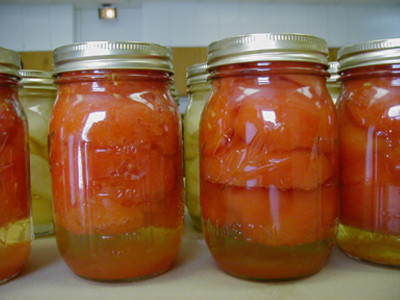COLLEGE STATION – Texans interested in establishing a cottage food production operation can benefit from programs offered by the Texas A&M AgriLife Extension Service, said agency experts.
“House Bill 970 on cottage food production operations signed by Governor Perry went into effect on September 1, 2013,” said Rebecca Dittmar, AgriLife Extension program specialist in Kerr County. “To help Texans understand about cottage food operations and to help them meet food safety requirements, AgriLife Extension has online programs and will also offer some in-person trainings.”
The amended law allows Texas residents to prepare and sell specific foods from an unlicensed residential kitchen, Dittmar said. Some of the benefits to cottage industries in the bill include expanding the list of foods that can be produced at the home, prohibiting municipalities from outlawing cottage food producers on the basis of zoning and allowing sales in various locations outside the home.
“The previous law limited the foods that could be sold to mainly baked goods, jams and jellies, and dried herbs,” she said. “Under the amended law that recently took effect, the list of foods that can be sold has been expanded to include pickles, popcorn snacks, candy, unroasted nut butters and vinegar. In addition, these foods can be sold at venues outside the home, including farmers markets, roadside stands and fairs.”
Dittmar said all cottage operation foods sold must be properly labeled to include the name and address of the operation, the name of the product and possible allergens, and a statement saying the food was not prepared in a kitchen inspected by the Department of State Health Services or a local health department.

Dr. Jenna Anding, AgriLife Extension program leader for nutrition and food sciences, said for Texans who want to start a cottage food production operation, the agency has developed a free online course providing information on the amended cottage food act, as well as general rules and best practices for safely preparing food. That course can be found at http://foodsafetyonline.tamu.edu.
The bill also mandated that, starting January 2014, all cottage food operations will be required to have an individual complete an accredited food-handler course.
Anding said to help meet that requirement AgriLife Extension also offers the Texas Food Handlers Certification course online in English, Spanish and Mandarin Chinese at https://extensiononline.tamu.edu/courses/food_safety.php. The course takes about two hours to complete and is accredited by the Texas Department of State Health Services.
“This course is recommended for all food service employees to help promote the service of safe food,” she said. “It is a basic overview of food safety principles and practices that are necessary to ensure you serve safe food at your establishment.”
The cost for taking the food handler’s course online is $15 per person, but discounted group rates may be available in some counties — and to ask the county AgriLife Extension family and consumer sciences agent for more information.
“One of the main benefits of this online course is that it is accessible from anywhere there’s Internet access and it can be taken at any time,” Dittmar noted. “Plus, it’s interactive, with participant activities and handouts.”
Upon completion of the Texas Food Handlers Course, participants will be able to print a food handler’s card. The card will be valid for two years and can be verified online. However, the cost of the course does not cover any fees associated with the person’s local health department.
“These courses will help Texans understand the parameters of the new law and get the food safety training they need to meet its requirements and help ensure they are producing a safe product for the consumer,” Dittmar said.
For more information, contact Dittmar at 830-896-9037, rsdittmar@ag.tamu.edu.